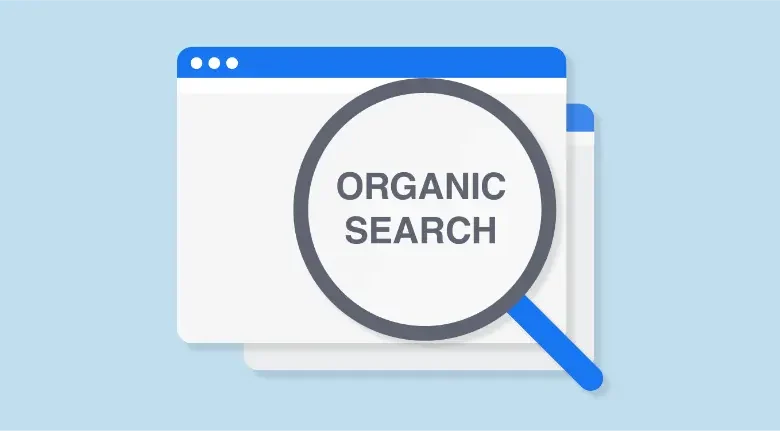Organic Search: A Step-by-Step Guide

Welcome to the ultimate guide to unlocking the power of organic search! In today’s digital landscape, standing out online is crucial for any business or website. Organic search plays a vital role in driving traffic and increasing visibility without breaking the bank. Are you ready to dive into the world of SEO and discover how to climb up those search engine rankings? Let’s explore everything you need to know about optimizing your online presence through organic search!
What is Organic Search?
Organic search refers to the natural way that users discover your website through search engines like Google, Bing, or Yahoo. When a user enters a query into a search engine, organic results are the non-paid listings that appear based on their relevance to the search terms. These results are determined by complex algorithms that assess factors such as keyword usage, content quality, and backlinks.
Unlike paid search advertising where you pay for placement at the top of search engine results pages (SERPs), organic search ranking is earned over time through strategic SEO efforts. By optimizing your website with relevant keywords and high-quality content, you can improve your chances of appearing higher in organic search results.
Organic traffic is valuable because it indicates genuine interest from users who are actively seeking information related to your products or services. By focusing on optimizing for organic search, you can attract targeted traffic and build credibility within your industry.
Why is Organic Search Important?
Organic search is crucial for businesses looking to increase their online visibility and reach their target audience effectively. Unlike paid search, organic search results are earned through the quality and relevance of your website content. This means that when users find your website through organic search, they are more likely to be genuinely interested in what you have to offer.
By optimizing your website for organic search, you can attract high-quality traffic that is more likely to convert into leads or sales. Organic search also helps build credibility and trust with potential customers since appearing at the top of search engine results indicates authority within your industry.
Furthermore, investing in organic search allows you to establish a long-term strategy for sustainable growth. As algorithms evolve, focusing on creating valuable content and improving user experience will continue to benefit your SEO efforts over time.
The Difference Between Organic and Paid Search
Have you ever wondered about the distinction between organic and paid search results? Well, let’s break it down for you. Organic search results are listings on search engine results pages that appear based on relevance to the user’s query, without any payment involved. These results are determined by complex algorithms that assess factors like keyword relevancy and website authority.
On the other hand, paid search involves advertisers paying to have their ads displayed when specific keywords are searched. These paid ads typically appear at the top of search engine results pages or in designated ad spaces. While they can provide immediate visibility, they come with a cost attached.
Understanding this difference is crucial for developing a comprehensive SEO strategy that leverages both organic and paid tactics effectively. By striking the right balance between the two, businesses can enhance their online presence and drive valuable traffic to their websites organically while also utilizing paid advertising strategically.
Understanding Search Engine Algorithms
Search engine algorithms are like the secret sauce behind organic search rankings. They dictate how websites are evaluated, ranked, and displayed to users. These complex formulas consider a myriad of factors to determine which pages best match a user’s query.
From keywords and content quality to backlinks and user experience, search engines analyze numerous signals to deliver relevant results. Understanding these algorithms is essential for optimizing your website’s visibility in organic search results.
Keep in mind that search engine algorithms are constantly evolving as technology advances and user behaviours change. Staying informed about algorithm updates and adapting your SEO strategies accordingly is crucial for maintaining a strong online presence.
While cracking the code of search engine algorithms may seem daunting, focusing on providing valuable content that meets the needs of your target audience is key to success in organic search rankings.
Steps to Improve Organic Search Ranking
If you’re looking to boost your website’s visibility and increase organic traffic, focusing on improving your search engine ranking is key. Here are some steps to help you enhance your organic search performance.
Start by conducting keyword research to identify relevant terms that your target audience is searching for. Utilize tools like Google Keyword Planner or SEMrush to discover high-performing keywords in your niche.
Optimize your website’s on-page elements such as title tags, meta descriptions, and headers with these chosen keywords. Ensure that the content on each page is valuable, informative, and engaging for visitors.
Create a consistent publishing schedule for fresh and quality content that aligns with both user intent and search engine algorithms. Regularly updating your site shows search engines that it is active and relevant.
Focus on building a strong backlink profile by earning links from reputable websites in your industry. High-quality backlinks signal authority to search engines and can positively impact your ranking.
Regularly monitor and analyze key metrics using tools like Google Analytics to track the success of your SEO efforts. Adjust strategies based on data insights to continually improve organic search performance.
Utilizing Keywords and Content Creation
Utilizing keywords and content creation is crucial in optimizing your website for organic search. Keywords are the foundation of SEO, helping search engines understand what your content is about. Conduct thorough keyword research to identify relevant terms that align with your target audience’s search queries.
Integrate these keywords strategically into your content while ensuring it reads naturally and provides value to the reader. Avoid keyword stuffing as it can harm your rankings and diminish user experience. Craft high-quality, engaging content that resonates with your audience and addresses their needs and interests.
Optimize meta titles, descriptions, headings, and image alt text with targeted keywords to enhance visibility in search results. Regularly update and refresh your content to keep it current and competitive within the ever-changing landscape of organic search ranking factors. Remember, quality always trumps quantity when it comes to creating valuable content for both users and search engines alike.
The Role of Backlinks in Organic Search
Backlinks are like the breadcrumbs leading search engines to your website. When other reputable sites link back to yours, it signals authority and trustworthiness, boosting your organic search ranking. Quality over quantity is key here – a few relevant and high-quality backlinks can outweigh numerous irrelevant ones.
Building backlinks takes time and effort but is worth the investment in improving your site’s visibility online. Guest blogging, influencer partnerships, and creating shareable content are effective strategies for acquiring valuable backlinks. Remember that natural link-building is preferred by search engines over manipulative tactics.
Diversifying anchor text and obtaining links from diverse sources help establish credibility with search algorithms. Monitoring your backlink profile regularly ensures that you maintain a healthy link profile free of spammy or toxic links. Embrace the power of backlinks in enhancing your organic search presence!
Tracking and Measuring Success in Organic Search
Tracking and measuring success in organic search is crucial for understanding the effectiveness of your SEO efforts. Utilizing tools like Google Analytics can provide valuable insights into website traffic, user behaviour, and conversion rates. By analyzing metrics such as organic traffic volume, keyword rankings, bounce rates, and click-through rates, you can identify areas for improvement.
Setting up goal tracking allows you to measure specific actions taken by visitors on your site, whether it’s making a purchase or filling out a contact form. This data helps you make informed decisions about optimizing your content and keywords to drive more organic traffic. Regularly monitoring these metrics enables you to adapt your SEO strategy based on performance trends and algorithm changes.
In addition to quantitative data, qualitative feedback from user engagement can offer valuable insights into how well your content resonates with your target audience. By continuously evaluating and adjusting your SEO tactics based on analytics data, you can enhance the visibility and relevance of your website in organic search results.
Tips for Staying Ahead in the Ever-Evolving World of SEO
In the fast-paced world of SEO, staying ahead of the curve is essential to maintaining organic search success. Keep up with industry trends by following reputable sources and attending relevant conferences or webinars. Network with other professionals in the field to exchange insights and best practices.
Regularly update your knowledge about search engine algorithms and adapt your strategies accordingly. Test new techniques and tools to see what works best for your website’s optimization. Stay flexible and be prepared to adjust your approach as algorithms evolve.
Consistently analyze data from tracking tools like Google Analytics to monitor performance and identify areas for improvement. Use this information to make informed decisions about optimizing keywords, content, and backlinks.
Remember that SEO is a marathon, not a sprint – focus on sustainable long-term strategies rather than quick fixes that could harm your site in the future. By staying proactive, adaptive, and committed to continuous learning, you can navigate the ever-evolving landscape of organic search with confidence.
Conclusion
As we navigate through the ever-changing landscape of SEO, one thing remains constant – the importance of organic search. By understanding how organic search works, utilizing keywords effectively, building strong backlinks, and consistently tracking performance metrics, you can improve your website’s visibility and attract more qualified traffic.
Remember to stay proactive in staying ahead of SEO trends and algorithm updates. Keep creating high-quality content that resonates with your target audience and fosters a sense of authority in your industry. Embrace the power of organic search to elevate your online presence and drive sustainable growth for your business.
Organic search is not just a strategy; it’s a long-term investment in the success of your digital presence. By implementing these steps and continually refining your approach, you can unlock new opportunities for reaching customers organically and establishing lasting relationships with them. Let organic search be the cornerstone of your SEO strategy as you strive for continued improvement and excellence in the digital realm.



